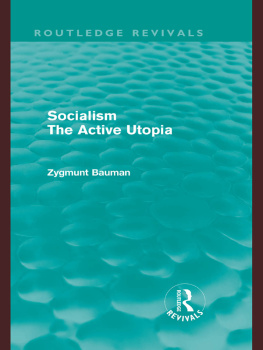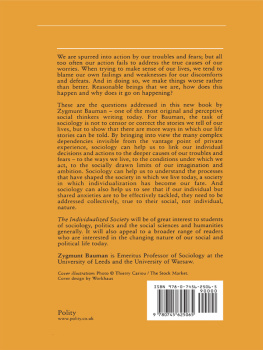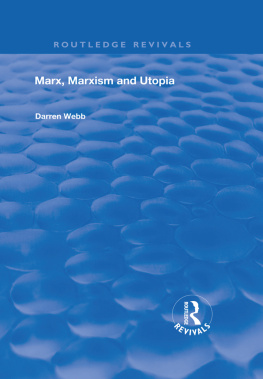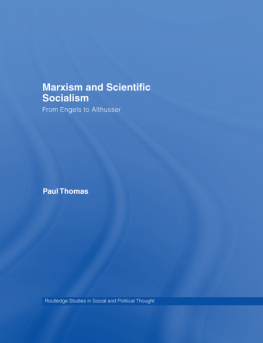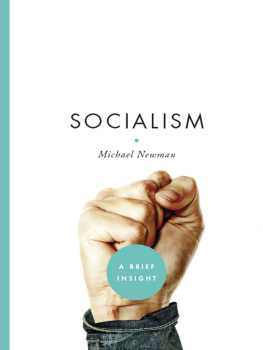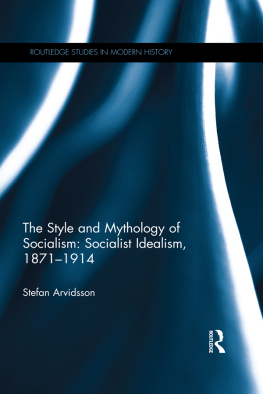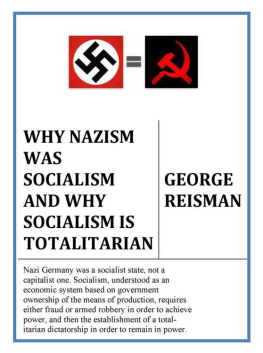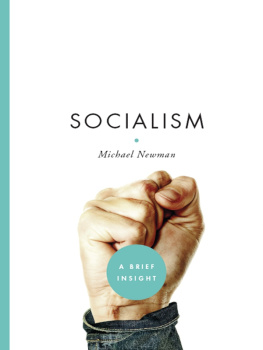Routledge Revivals
Socialism The Active Utopia
Rather than contributing to the long-standing discussion about the characteristics of the society that socialism proposes to establish, this Routledge Revival, initially published in 1976, aims to explore the impact of the living utopia of socialism on the development of modern society. It begins with an analysis of the role of utopia in general, and of the socialist utopia in particular; considers the opposition between utopian and scientific social thought; presents socialism as the counter-culture of capitalist society; and examines the reasons for the failure of socialism in its application to the peasant revolution in Russia.
It then explores some possible forms that the socialist utopia might take in the industrial societies of the late twentieth century. Professor Bauman writes for those who want to understand the logic of the historical fate of socialism in the twentieth century, who are concerned about the validity and vitality of socialist ideas on the development of modern society, and who are interested, and perhaps confused, by the cultural and ideological conflicts of the post-war era.
Socialism The Active Utopia
Zygmunt Bauman
First published in 1976
by George Allen & Unwin Ltd.
This edition first published in 2010 by Routledge
2 Park Square, Milton Park, Abingdon, Oxon, OX14 4RN
Simultaneously published in the USA and Canada
by Routledge
270 Madison Avenue, New York, NY 10016
Routledge is an imprint of the Taylor & Francis Group, an informa business
This edition published in the Taylor & Francis e-Library, 2009.
To purchase your own copy of this or any of Taylor & Francis or Routledges collection of thousands of eBooks please go to www.eBookstore.tandf.co.uk.
1976 George Allen & Unwin Ltd
All rights reserved. No part of this book may be reprinted or reproduced or
utilised in any form or by any electronic, mechanical, or other means, now
known or hereafter invented, including photocopying and recording, or in any
information storage or retrieval system, without permission in writing from the
publishers.
Publishers Note
The publisher has gone to great lengths to ensure the quality of this reprint but
points out that some imperfections in the original copies may be apparent.
Disclaimer
The publisher has made every effort to trace copyright holders and welcomes
correspondence from those they have been unable to contact.
ISBN 0-203-85571-X Master e-book ISBN
ISBN 13:978-0-415-57163-0 (hbk)
ISBN 13:978-0-203-85571-3 (ebk)
ISBN 10:0-415-57163-4 (hbk)
ISBN 10:0-203-85571-X (ebk)
Socialism The Active Utopia
Controversies in Sociology
edited by
Professor T.B.Bottomore and Dr M.J.Mulkay
in the same series
Social Theory and Political Practice by Brian Fay
Understanding Social Life by R.W.Outhwaite
Socialism The Active Utopia
by
ZYGMUNT BAUMAN
Professor of Sociology, University of Leeds
London
George Allen & Unwin Ltd
Ruskin House Museum Street
First published in 1976
This edition published in the Taylor & Francis e-Library, 2009.
To purchase your own copy of this or any of Taylor & Francis or Routledges collection of thousands of eBooks please go to www.eBookstore.tandf.co.uk.
This book is copyright under the Berne Convention. All
rights are reserved. Apart from any fair dealing for the
purpose of private study, research, criticism or review, as
permitted under the Copyright Act, 1956, no part of this
publication may be reproduced, stored in a retrieval
system, or transmitted, in any form or by any means,
electronic, electrical, chemical, mechanical, optical, photocopying, recording or otherwise, without the prior pennission of the copyright owner. Enquiries should be
addressed to the publishers.
George Allen & Unwin Ltd. 1976
ISBN 0-203-85571-X Master e-book ISBN
ISBN 0 04 300059 2 hardback
0 04 300060 5 paperback
To Irena and Lydiamy twin utopias
No man can put forth any special claim in the face
of Nature; but in society want at once becomes
an injustice either to this class or to that.
HEGEL
Contents
1
Utopia and Reality
Socialism descended upon nineteenth-century Europe as utopia.
This statement is bound to provoke one of two responses: either of angry protests from those who feel safer on a sturdy jeep of historical necessity than on a flying carpet of human will; or of friendly smiles from those who feel that the world we live in would be a much happier place were it never haunted by the abortive venture into equality. Both protests and smiles areI admitmore than partly justified by the sense in which the concept of utopia has sedimented in the public mind. But it is not the sense in which I propose to use it.
The context in which the word utopia appears most often in everyday discourse is the phrase condemning an idea, a project, an expectation as a mere utopia. The phrase marks the end, not the beginning of an argument; one can still quarrel, to be sure, whether the verdict applies to a particular case, but provided it does, further consideration of the possible merits of the idea in question will make little sense. The indictment amounts to a flip and irrevocable dismissal of the idea as a figment of unrestrained fantasy, unscientific, at odds with realityi.e. loaded with all those features which mark off an idea as something to be kept at a safe distance from scholarly discourse.
The operation has been performed often enough to turn it into a purely perfunctory procedure, which no longer requires reference to the original justification. One can only suppose that the disrepute into which utopian thinking has fallen is that shared by magic, religion, and alchemyall those slushy paths of the errant human mind which modern science set about eliminating once and for all from the map of human action. Having been defined from the outset as an idle, unrealistic blueprint without much basis in reality,
A*
utopia was irretrievably cast among the false ideas which in fact hinder human progress by diverting human effort from the ways of reason and rationality. Stripping Thomas Mores term of its intended ambiguity and reducing it to only one of the two originally intertwined meaningsto a place which does not exist (no longer associated with a place to be desired, eutopia)the dominant usage rendered the historical irrelevance of utopia self-verifying. With the benefit of hindsight the blueprints which had materialised were classified as predictions, while the name utopia was kept only for those which failed to do so.
The insufficiency of treating utopias as predictions which turned out to be false, or plans which failed to prove their realism, will become evident if we only agree that each moment of human history is, to a greater or a lesser degree, an open-ended situation; a situation which is not entirely determined by the structure of its own past, and from which more than one string of events may follow (not only in a subjective sense, considering the state of our knowledge, but in the objective sense as well, considering a complete knowledge of the present and the past which could have been collected and processed only if the perfect research and dataprocessing technology had been available). People, said C.Wright Mills, may become aware of predictions made about their activities, and accordingly they can and often do re-direct themselves; they may falsify or fulfil the predictions. Which they will do is not, as yet, subject to very good prediction. In so far as men have some degree of freedom, what they may do will not be readily predictable. it seems to me neither more nor less conceivable that the future

